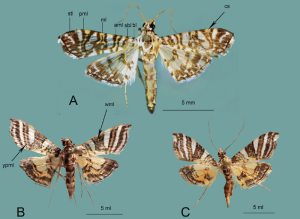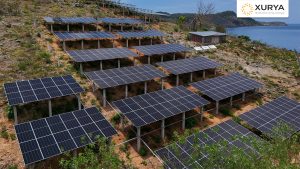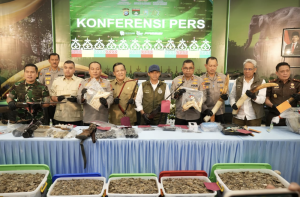Jakarta – PT Perusahaan Gas Negara Tbk (PGN), the gas subholding of PT Pertamina (Persero), is working on one of the strategic projects to build the Tegal-Cilacap gas pipeline, which is targeted at strengthening clean energy supply for the industrial sector in Central Java and its surroundings.
PGN’s Director of Strategy and Business Development, Rosa Permata Sari, in a written statement, Monday, 4 August, explained that natural gas is a vital component in the national energy mix, especially ahead of the 2025 target where the proportion of natural gas is targeted to reach 22%. “The construction of this gas pipeline will be the backbone of the expansion of low-carbon energy distribution to important sectors,” Rosa said.
The Tegal-Cilacap pipeline project is part of PGN’s priorities in the next five years to strengthen national natural gas distribution. This project will expand the reach of energy supply to the industrial area in Cilacap, which has been relying on high-emission energy sources.
PGN also aims to reduce carbon emissions directly through the household gas network (jargas) programme. By 2024, more than 815,000 household connections have been connected with a total pipeline length of 20,000 km.
“With a target of 450,000 additional household connections in the next five years, we estimate the potential to reduce carbon emissions by 380,000 tonnes of CO₂ per year by 2034,” Rosa explained.
Encouraging renewable energy through biomethane and hydrogen
Not only focusing on natural gas, PGN is now stepping into renewable energy. One of them is biomethane, energy produced from agricultural waste such as straw, palm oil, and livestock manure. This energy will be refined and injected into the existing gas pipeline network. “We are targeting biomethane to be on stream by 2027 as part of the net-zero emission initiative,” said Rosa.
In addition, PGN is also developing the potential of green hydrogen and ammonia as future energy alternatives. For this development, PGN is adopting a strategic partnership approach so that the process of entering into new sectors can proceed with more mature risk mitigation.
PGN is also preparing LNG storage and regasification infrastructure in Java, to secure the supply of liquefied gas from eastern Indonesia to areas with high demand. As for Compressed Natural Gas (CNG), the focus of its distribution is directed to the MSME sector, hotels, restaurants and cafes, which are considered the most in need of clean energy at an efficient cost.
“The integrated use of LNG and CNG will also support the government’s programme to reduce the burden of energy subsidies,” Rosa added.
According to Rosa, all of PGN’s steps are directed at strengthening the role of natural gas as a transitional energy towards a cleaner and more sustainable energy system. (Hartatik)
Banner photo: Image generated by OpenAI’s DALL·E via ChatGPT (2025)















